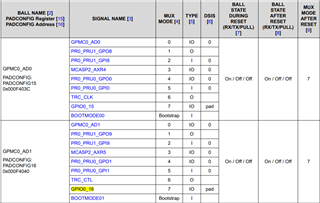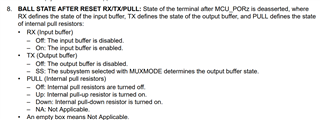Other Parts Discussed in Thread: SK-AM62B-P1
Tool/software:
Hello,
Our custom board uses another design than the EVM, its another phy and the clock is obtained from the SOC (MCU_SPI0_CS1.MCU_OBSCLK0). So I need to change the U-Boot device tree to get the ethernet up.
I use the same dts as for the AM62 lp sk EVM, but added the modifications to network in the k3-am62x-sk-common.dtsi. The k3-am62-lp-sk.dtb is compiled ok, but my changes does not take effect when the u-boot.img runs (using dfu load).
I have:
CONFIG_DEFAULT_DEVICE_TREE="k3-am62-lp-sk"
But the mkimage -l u-boot.img lists this dtb: Image 1 (fdt-0) Description: k3-am625-sk
It looks wrong to me.. as I would expect k3-am62-lp-sk.
I tried many changes but keeps getting the same error during u-boot.img, and there is no sign that my changes are loaded. I get:
Net: Could not get PHY for ethernet@8000000port@1: addr 0 am65_cpsw_nuss_port ethernet@8000000port@1: phy_connect() failed No ethernet found.
So where do I make the changes in order to have the phy working?
Any help is appreciated!
Thanks
Lars



